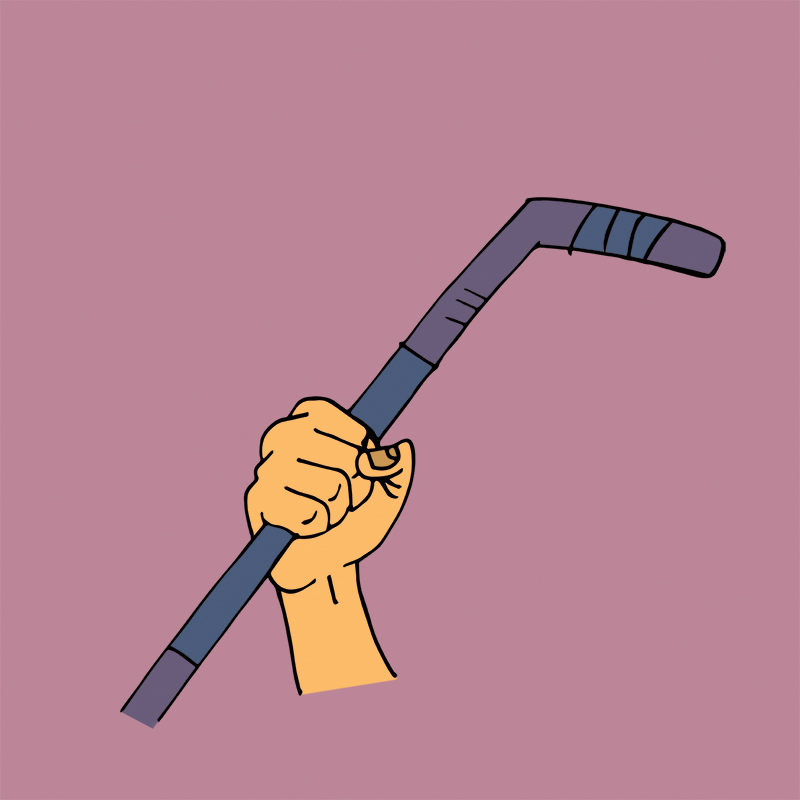Concordia student’s master’s study analyses the sport’s culture
When I met Aaron Lakoff, the Concordia media studies student was wearing a Montreal Canadiens cap. It’s his favourite hockey team, he told me a few minutes after our first handshake. It’s also a case study for hockey culture: the Canadiens are the National Hockey League’s oldest and winningest franchise.
Lakoff admitted he has difficulty accurately defining this culture. Nonetheless, it will be his object of analysis in the four-episode podcast about social justice in hockey he is producing to complete a master’s study he began in September 2016.
If the time to start such a study was fascinating—former San Francisco 49ers quarterback Colin Kaepernick had begun kneeling during the national anthem of NFL preseason games to protest the oppression of people of color in the United States—the topic of social justice in hockey has never been more prominent.
On Sept. 24, the Stanley Cup-winning Pittsburgh Penguins accepted American president Donald Trump’s invitation to visit the White House with the cup, a tradition in the NHL.
“I think it’s completely tone-deaf what the Penguins are doing by accepting the invitation,” Lakoff said.
A day earlier, Trump rescinded his offer to the NBA champion Golden State Warriors after star player Stephen Curry openly criticized the American president.
“My research looks at social justice in hockey and asks this question: Why are we not seeing the same political stances [from players] like we see in the NBA and in the NFL?” Lakoff explained. To answer that question, he said he will be examining “several different social justice hockey perspectives,” starting with colonialism in Canadian hockey, racism in hockey and the Indigenous hockey experience.
The latter is especially salient to the Concordia student. “For me, what’s really important is centring on the fact that we live on Indigenous land; Montreal is unceded Mohawk territory,” Lakoff said.
The popularization of hockey among First Nations intersects with Canada’s assimilation process during the 20th century in the government-sponsored residential schools, according to Lakoff.
Hockey was a bit of an imposition, he explained, because “priests wanted to get young Aboriginal boys into hockey to inculcate them with Canadian values.”
While the Indigenous hockey experience isn’t his main focus, Lakoff’s first interview was with an Algonquin media producer who directs Hit the Ice, a TV show on the Aboriginal Peoples Television Network (APTN) featuring the best Aboriginal hockey players participating in an NHL-like training camp.
Lakoff said he also has interviews lined up with Indigenous hockey players, thinkers of the game and feminist sportswriters, among others.
Hockey writers, Lakoff argued, “have to acknowledge that sports are inherently political.”
“Sometimes the backlash that you’ll hear from people who don’t like to see these anthem protests will be ‘stick to sports,’” he said. “But that is an incredibly ignorant statement because it doesn’t recognize the fact that sports are so embedded in politics.”
According to Lakoff, political influence is found in many forms in hockey, such as the anthems themselves, the presence of military before some games and taxpayers’ money used to fund private stadiums and arenas.
The Concordia student said he “would love to produce something that gives people a tool to confront and oppose, fix and repair the negative aspects of hockey culture.”
“What those protests do is create a space to have a discussion,” Lakoff said. “My research is a humble addition to this discussion.”
Graphic by Zeze Le Lin




